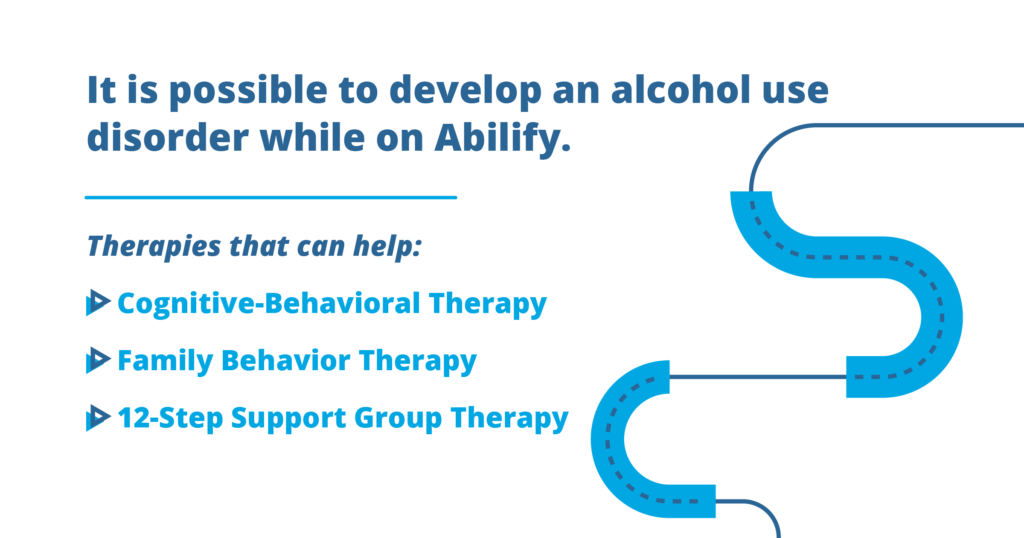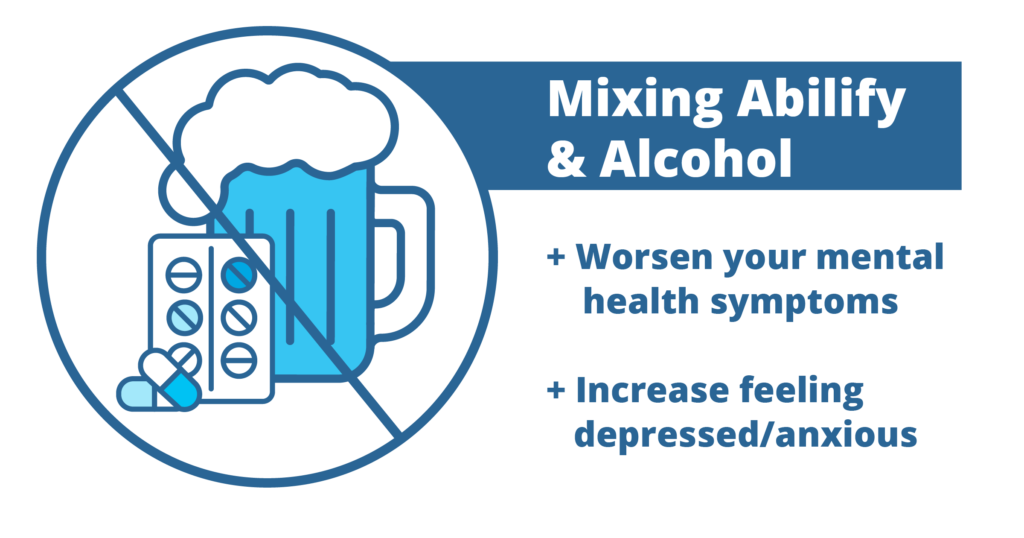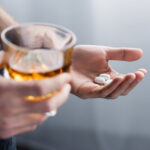Abilify is a prescription medication used to treat mental health disorders, including schizophrenia, depression, and bipolar disorder. If you’re using Abilify to treat a mental health condition, you may be curious about how it interacts with alcohol and what would happen if you decided to have a few drinks.
Here’s what you need to know about mixing Abilify with alcohol and how to contact The Haven if you need treatment for a mental health disorder and addiction.
What Is Abilify?
Abilify is the brand name of a drug called aripiprazole. It belongs to a class of medications called atypical antipsychotics. It works by changing the activity of certain chemicals in the brain that plays a vital role in your mood and mental health.
According to a 2020 study published in BMC Psychiatry, an estimated 1.7% of adults in the United States use an antipsychotic drug like Abilify to manage their mental illness. Some people may even use this medication with other prescription medications to regulate their moods and symptoms.

What Are the Side Effects of Abilify?
Aripiprazole is shown to cause a wide range of side effects. According to the National Library of Medicine (NLM), side effects of aripiprazole include:
- Headache
- Dizziness
- Nervousness
- Restlessness
- Tiredness
- Problems with balance and coordination
- Heartburn
- Stomach pain
- Diarrhea
- Constipation
- Changes in appetite
- Weight gain
- Increased salivation
- Pain, particularly in the arms, legs, and joints
Some Abilify users may experience severe side effects. These effects include:
- Allergic reaction (rash; hives; itching; difficulty breathing or swallowing; swelling of the face, throat, hands, feet, or lower legs)
- Changes in vision
- Seizures
- Problems with balance and coordination
- Tightening of the throat and neck muscles
- Uncontrollable shaking of the face, tongue, or other parts of the body
- Fever
- Sweating
- Confusion
- Irregular heart rate
What Are the Effects of Alcohol?
Alcohol is a depressant that works like a sedative. Meaning alcohol slows down processes like breathing and heart rate controlled by your central nervous system. When used mildly or in moderation, the effects of alcohol can make you feel relaxed, calm, and euphoric.
Alcohol starts causing severe, serious side effects if you drink too much on one occasion or drink heavily in high amounts regularly.
Short-term and long-term effects of alcohol misuse, according to the National Institutes of Health (NIH), include:
- Nausea and vomiting
- Slurred speech
- Poor judgment and decision making
- Poor balance and coordination
- Slow reflexes and reaction time
- Sleeping problems
- Mood swings and irritability
- Difficulty breathing
- Slowed heart rate
- High blood pressure
- Liver disease
- Inflammation of the pancreas
- Memory loss or blackouts
- Loss of consciousness
- Cancer
- Coma
- Death
How Does Alcohol Affect Mental Health, Specifically?
Drinking alcohol regularly and in high amounts increases your risk for mental health problems. Not only can it alter your mood temporarily, but it can cause long-lasting changes in the brain that often requires intensive and long-term mental health treatment.
Alcohol interacts with several brain chemicals that control your mood and many other bodily processes, reports the NIH. Dopamine, serotonin, and gamma-aminobutyric acid (GABA) are some of the many vital brain chemicals affected by alcohol use.
Dopamine is responsible for allowing you to experience pleasure, satisfaction, and motivation. Serotonin helps regulate your happiness, anxiety, and mood, as well as your behavior, body temperature, and attention span. GABA plays a vital role in many central nervous system processes and regulates sleep, depression, and anxiety.
In healthy people, the brain produces these chemicals on its own, naturally. Healthy lifestyle behaviors such as exercise, nutrition, and quality sleep can often help your body make and regulate these chemicals. On the flip side, unhealthy behaviors such as lack of exercise, poor nutrition, poor sleep, and substance abuse can affect your brain’s production of these chemicals to cause mood imbalances and mental health issues.
In regards to alcohol specifically, high amounts of alcohol can affect your brain’s ability to produce these chemicals naturally on its own. Meaning alcohol may make you feel sad, depressed, or anxious after a night of heavy drinking or after a long period of drinking. Over time, your brain can become dependent on alcohol to supply these chemicals and may eventually stop producing them.
The good news is that some brain damage caused by heavy alcohol use can often be reversed or improved with abstinence, adds the NIH. The sooner you get help for alcohol misuse and addiction, the sooner you can improve your mental health and start feeling better and happier naturally without needing to rely on drugs or alcohol.

Is it Safe to Drink Alcohol While Using Abilify?
The NLM advises against drinking any alcohol while using Abilify. It adds that combining these two substances can worsen the drowsiness caused by Abilify regardless of the dose of aripiprazole you are taking. This could lead to increased sleepiness and accidents in some cases.
Ask your doctor for more information about the safety of alcohol use while using Abilify.
What Will Happen if I’m Drinking Alcohol and Using Abilify?
In addition to increasing your risk for drowsiness and accidents, the combination of alcohol and Abilify can worsen your mental health disorder.
People with mental health disorders already suffer from imbalances in brain chemistry. Therefore, drinking alcohol can worsen these imbalances to cause more severe mental health symptoms.
In a 2017 study published in CNS Drugs, researchers examined the symptoms and behaviors of people diagnosed with both bipolar disorder and alcohol use disorder. They found that alcohol increased these individuals’ severity of manic and depressive episodes. Also, the study suggests that these individuals experience a higher rate of hospital stays and suicide than those diagnosed with just one of these disorders.
A person with both a mental health disorder and a drug or alcohol addiction is known to have a dual diagnosis or co-occurring disorders. Many people with mental illnesses will drink alcohol to treat or reduce their mental health symptoms. At the same time, people who drink alcohol in high amounts are more likely to develop mental illnesses later on due to how alcohol affects their brain chemistry.
In conclusion, if you’re drinking alcohol and using Abilify, you face a greater risk of experiencing severe mental health problems. This could lead to longer, more intensive treatment, hospitalization, or suicide.
Can I Drink Alcohol While Using Other Antipsychotic Medications?
Antipsychotic medications all work the same way to treat brain chemical imbalances and mental health disorders. Therefore, drinking alcohol while using other antipsychotic drugs will likely worsen your mental health symptoms just as it would if you were using Abilify.
Many doctors recommend avoiding alcohol while using any antipsychotic drug for this reason. However, the information outlined in this article is for information purposes only and should not be used as a substitute for professional medical advice or diagnosis. Consult with your doctor for more information about drinking alcohol while using Abilify.
What Happens if I Develop Alcohol Use Disorder While Using Abilify?
If you use Abilify and think you may have a problem with alcohol addiction, the best thing you can do for your overall health and well-being is seek professional treatment at an addiction recovery center.
According to the NIH, roughly half of all people with a mental illness will also have a substance use disorder at some point in their lives, and vice versa. Because of this, many alcohol rehab centers offer therapies that can effectively treat both your alcohol addiction and mental illness at the same time. Without addressing both conditions simultaneously, you face a greater risk of relapse down the road.
Dual diagnosis therapy usually involves using medications, behavioral therapies, or a combination of both.
Medications often reduce or control symptoms of your mental illness. If you are using Abilify, your doctor may keep you on this medication or switch you to another that may better manage your symptoms. If you were drinking alcohol because you didn’t feel as though Abilify was beneficial at treating your mental health condition, then your doctor may consider switching your medication.
The behavioral therapies you receive will address the root causes of your dual diagnosis and are often more effective than just medications alone. Medications tend to manage only your symptoms, while behavioral therapy can help you change harmful behaviors, thoughts, and attitudes that may be driving both your mental illness and alcohol addiction.
Some standard therapies used in dual diagnosis therapy, according to the NIH, are therapeutic communities, assertive community treatment, dialectical behavior therapy, exposure therapy, and integrated group therapy. These therapies focus on re-socializing patients, reducing self-harm behaviors like suicide, and helping patients overcome traumatic experiences.
Alcohol rehab centers may also use other therapies, including cognitive-behavioral therapy, family behavior therapy, and 12-step support group therapy like Alcoholics Anonymous.
Recovering From Substance Abuse at The Haven
At The Haven, we offer alcohol detox, residential rehab programs, and dual diagnosis therapies for those living with substance use disorder and mental illness. We will be more than happy to meet with you to discuss all your treatment options when you’re ready.
Contact us today at (561) 328-8627 to learn more about our many available addiction treatment programs and to make an appointment so we can discuss advice, diagnosis, or treatment.






